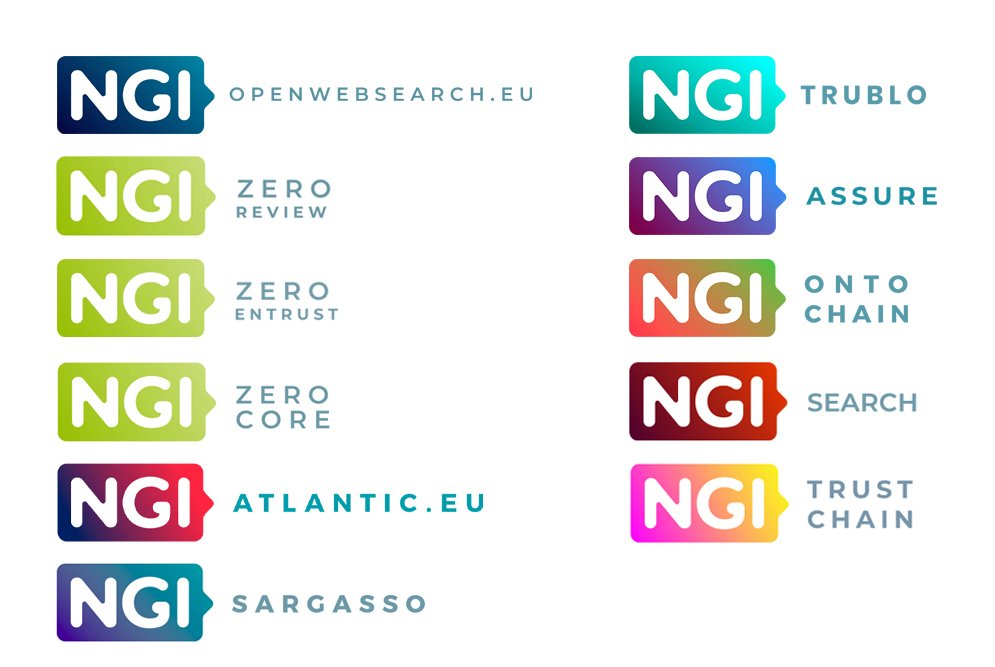This Frequently Asked Question page provides answers to popular questions about the Next Generation Internet (NGI).
NEXT GENERATION INTERNET INITIATIVE – NGI OVERVIEW
The Next Generation Internet (NGI) initiative aims to shape the development of the Internet of tomorrow into an Internet of humans that responds to people’s fundamental needs, including trust, security and inclusion, and reflects the values and the norms that we enjoy in Europe.
The NGI initiative aims to build the key technology blocks of a human-centric Internet, which gives end-users full control of their personal data. Through advanced technologies, new decentralised business and social models will ensure secure and trustworthy access for all.
The mission of NGI is to re-imagine and re-engineer the Internet. The information age should enable human potential, mobility and creativity in an inclusive way – while dealing responsibly with our natural resources.
The Next Generation Internet – An Open Internet Initiative (NGI), is a key priority in H2020 ICT work programme 2018-2020 (WP2018-20) which includes calls covering eight technology-oriented topics with an agile and dynamic approach to Research and Innovation in the Internet.
NGI uses cascading grants to support individual teams of researchers or startups in short research cycles with a clear aim to quickly bring research results to the market.
The EC’s ‘NGI Key Priority’ covers additional related topics beyond the NGI Initiative in the areas of Internet of Things, Artificial Intelligence, Future media, Interactive technologies, Language technologies and inclusion.
For more information, consult the NGI Brochure.
NGI proposes a new approach to Internet research and innovation with agile and dynamic cascading grants. Researchers and innovators can apply for funding in any technology area under NGI:
- Shaping the web search of the future: NGI OPENWEBSEARCH.EU
- Support programme offering various targeted services to free and open source projects: NGI ZERO REVIEW
- Better technologies to restore and maintain European sovereignty and to secure democratic ownership of the digital society: NGI ZERO CORE
- Innovation through free and open source software: NGI ZERO ENTRUST
- Blockchain technologies to fight misinformation: NGI TRUBLO
- Software ecosystem for knowledge management: NGI ONTOCHAIN
- Reinforcing the European blockchain ecosystem: NGI ASSURE
- NGI experiments together with US teams: NGI ATLANTIC.EU
- A new trustworthy data governance and sharing model: NGI TRUSTCHAIN
- Supports entrepreneurs, tech-geeks, developers, and socially engaged people, who are capable of challenging the way we search and discover information and resources on the internet: NGI SEARCH
- Focuses on catalysing European collaboration with the US and Canada: NGI SARGASSO
NGI builds on Coordination and Support Actions to ensure synergies across all stakeholders, with a focus on:
- Outreach, community building, business acceleration
- Policy and strategic programming
- EU-US collaboration
The NGI initiative is supported by two ongoing Coordination and Support Actions:
- NGI4ALL.E, coordinates the NGI Outreach Office (NGIO)
- NGI Enrichers, conducts missions to the US and Canada for Top European Researchers & Innovators
Funding
For information on Horizon Europe eligibility, the European Commission has issued a list of participating countries, available here.
Calls relating to the next generation Internet, of relevance to the NGI community are listed under Pillar II, Global Challenges and European Industrial Competitiveness, Cluster 4, Digital, Industry and Space.
Horizon 2020 list of countries and applicable rules for funding document is available at: https://ec.europa.eu/research/participants/data/ref/h2020/other/wp/2018-2020/annexes/h2020-wp1820-annex-a-countries-rules_en.pdf.
- Those running the R&I Actions (NGI centres) who will set the research agenda for the topic and will launch the calls for third party projects
- The third parties (sub-grantees) who will implement the research. Here there is a focus on top researchers, hi-tech startups and SMEs who have the capacity to set the course of Internet evolution.
Access the open calls here: ngi.eu/opencalls
Contact the ICT National Contact points in your country: http://ec.europa.eu/research/participants/portal/desktop/en/support/national_contact_points.html
You should note that the implementation of the NGI projects using cascading grants establishes two types of beneficiaries:
- Those running the R&I Actions (NGI centres) who will set the research agenda for the topic and will launch the calls for third party projects.
- The third parties (sub-grantees) who will implement the research. Here there is a focus on top researchers, hi-tech startups and SMEs who have the capacity to set the course of Internet evolution.




